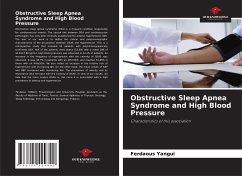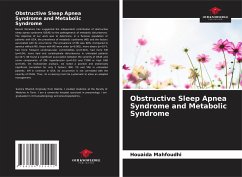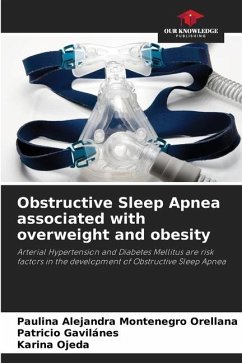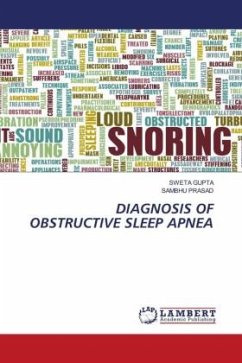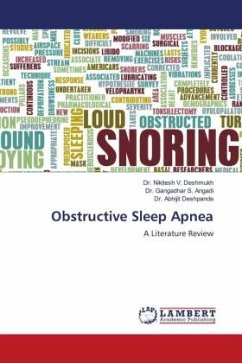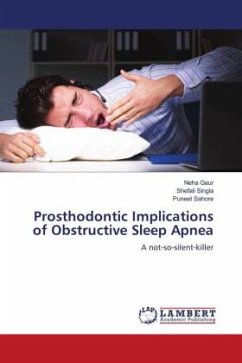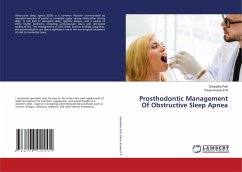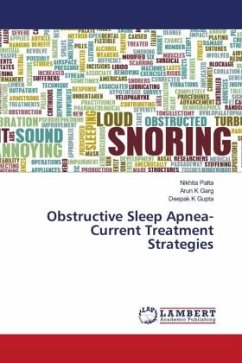
Obstructive Sleep Apnea Syndrome and Nutritional Intake
Quantitative and qualitative assessment
Versandkostenfrei!
Versandfertig in 6-10 Tagen
27,99 €
inkl. MwSt.

PAYBACK Punkte
14 °P sammeln!
Obesity is the main risk factor for obstructive sleep apnea syndrome (OSA). This obesity is likely to worsen during OSA due to metabolic and hormonal imbalances in dietary intake. Thus, regular assessment of nutritional intakes is necessary during the management of patients followed for OSA in order to detect these imbalances and to manage them rapidly in order to allow the patient to have a satisfactory weight reduction. The aim of this work was to evaluate the dietary habits and nutritional intakes of patients with OSA and to identify the relationship between these dietary habits and the sev...
Obesity is the main risk factor for obstructive sleep apnea syndrome (OSA). This obesity is likely to worsen during OSA due to metabolic and hormonal imbalances in dietary intake. Thus, regular assessment of nutritional intakes is necessary during the management of patients followed for OSA in order to detect these imbalances and to manage them rapidly in order to allow the patient to have a satisfactory weight reduction. The aim of this work was to evaluate the dietary habits and nutritional intakes of patients with OSA and to identify the relationship between these dietary habits and the severity of OSA. For this purpose, we conducted a prospective study that included thirty patients with OSA confirmed by polygraphic recording. Our population was divided into 18 men and 12 women, the average age of the patients was 52.7±11.4 years. The mean BMI of the patients was 36.5±5.8 Kg/m2 and 86% of the patients were obese. BMI increased with the severity of OSAS.



